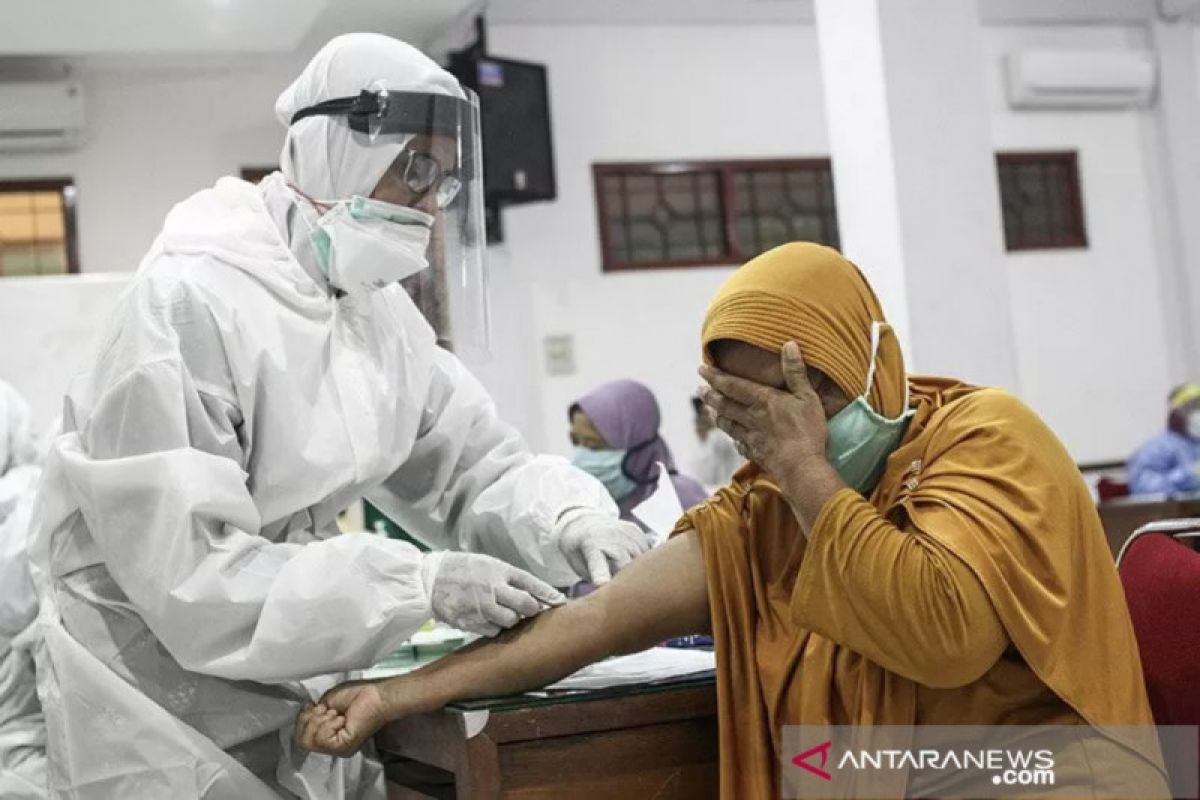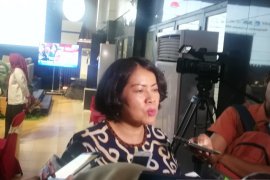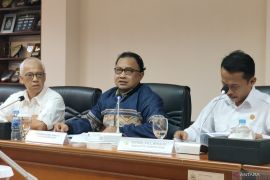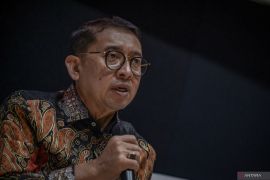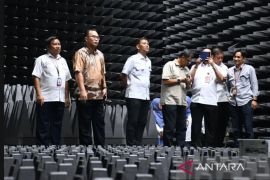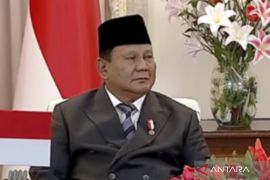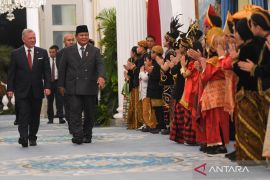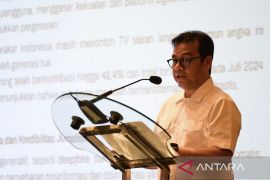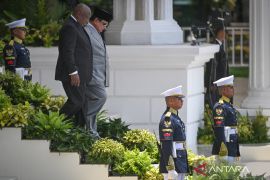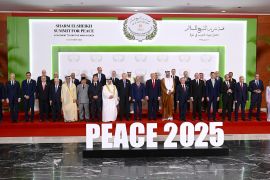The COVID-19 pandemic has left people with no choice but to adapt swiftly and recover from the shock.
The pandemic has undeniably brought about a drastic change in the lives of people.
Offices have begun implementing a work-from-home policy.
Teaching and learning activities at schools have been temporarily suspended, and online classes have become the norm instead. Students grasp lessons from what they see on their screens.
Religious activities are conducted personally and in private spaces.
The house has become the hub of activities until the problem is solved.
In Indonesia, the number of confirmed positive cases of COVID-19 reported by the Task Force for Handling COVID-19 as of Sunday (Aug 16) at 12:00 rose by 2,081, thereby bringing the total count to 139,549 cases.
Meanwhile, 1,782 patients recovered from the disease. The total number of COVID-19 patients making a successful recovery reached 93,103.
The number of day-to-day recoveries has also continued to grow, thereby demonstrating that this disease can be cured.
However, in tandem with the continued increase in the number of recovered patients, the number of confirmed COVID-19 patients succumbing to the disease rose by 79 to reach 6,150 deaths.
During the commemoration of the 75th anniversary of the Independence of the Republic of Indonesia (RI), medical personnel are currently making all-out efforts in the fight against the COVID-19 pandemic.
The commemoration becomes a momentum to boost the spirit of reclaiming and maintaining the values or meaning of independent life.
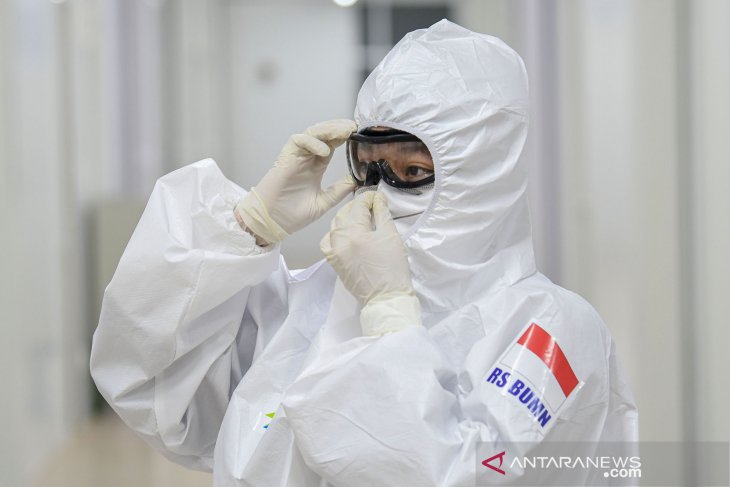
Chairperson of the Indonesia Association of Lung Doctors (PDPI) Dr. Agus Dwi Susanto noted that the commemoration of Indonesia's Independence Day on August 17, 2020, offers a momentum to be utilized by all parties to be free from the COVID-19 pandemic.
With this spirit of independence, the PDPI conveyed to patients that they could successfully recover from COVID-19 and be free from the disease, he remarked.
The PDPI has also urged all medical personnel across the country, especially pulmonary doctors, to be vociferous and encouraging while lending assurance and hope to patients exposed to COVID-19 of their recovery.
The support and enthusiasm must also be in line with the therapy or medication instructions given by medical personnel.
In addition to COVID-19 patients, the PDPI appealed to all its members to continue to serve patients with a spirit of independence.
"With the spirit of independence, the spirit of health workers must also increase to help cure patients," he affirmed.
Through the momentum presented by the 75th anniversary of Indonesian Independence, medical personnel, under the PDPI, were urged to be more active in edifying the public on health protocols, including efforts to prevent COVID-19.
In general, the PDPI views that the Indonesian Independence Day commemoration in 2020 is indeed different from before amid the need to adjust to conditions of the COVID-19 pandemic.
Hence, while conducting activities, every element of society, at the regional and central levels, should apply stringent health protocols, with the goal of curbing the rise in the number of COVID-19 cases.
Activities held should by and large maintain and apply strict health protocols.
Meanwhile, President Director of Pertamedika IHC Dr Fathema Djan Rachmat believes that freedom is truly attained when one and all adopt a disciplined approach in wearing masks and work towards preventing transmission through sustained high efforts and enthusiasm to restore the Indonesian economy.
"Do not give up the fight against COVID-19," Rachmat noted.
Independence must be marked by the commitment of all Indonesian citizens to fight the COVID-19 pandemic.
"We already understand that the transmission of COVID-19 can be prevented through the application of health protocols, but we need to step up discipline and raise awareness on the importance of washing hands, wearing masks, maintaining a recommended safe distance, and avoiding crowds," she stated.
The current economic crisis is based on the health crisis, and Indonesian people must be able to overcome it. Consequently, the Indonesian economy will recover again.
"The meaning of independence for us, as the vanguards, is that we continue to learn and quickly understand the disease caused by the coronavirus," Fathema affirmed.
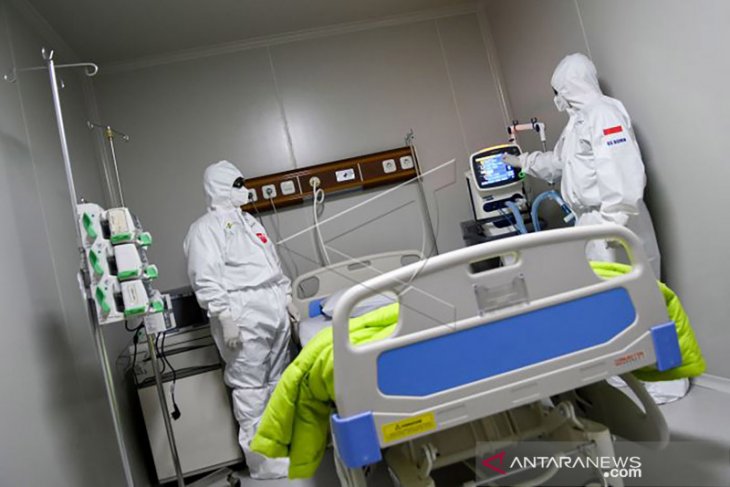
(ANTARA FOTO/M Risyal Hidayat/wsj.) (ANTARA FOTO/M Risyal Hidayat/wsj.)
Independence (merdeka) translates to the fact that the public is sentient of how to treat this disease since COVID-19 is a curable disease through continued improvement in tracking, tracing, testing, protocol, treatment, and prevention.
"Merdeka also means that we have the courage to provide early-phase treatment of the disease, with the right medicines, and intervene according to the timing or phase of the disease, so that we can be more successful in healing many patients," Fathema explained.
In the eyes of Fathema, independence also means that the medical workforce, doctors, nurses, and stakeholders engaged in the health sector work together in one direction to win the battle against COVID-19 by utilizing all resources effectively and making collective efforts, with a spirit of patriotism.
All of them are from the areas of health, economy, finance, government, state-owned enterprises, and the private sectors.
Independence also means being brave and not fearful during the COVID-19 pandemic and to keep striving and making endeavors for recovering the economy back to that before the pandemic.
The crisis presents a huge opportunity, especially for the health sector, and leaders are mandated to apply different ways of working to solve economic problems.
Related news: After COVID shock, Indonesia moves to make health sector crisis-ready
Related news: 1,866 Indonesians registered for Sinovac COVID-19 vaccine trials
"We may be busy in dealing with the COVID-19 pandemic, but we need to prepare for the future in the health industry. Telemedicine, the implementation of industry-based health services 4.0, prepares medical data that is ready for analysis (big data analysis) and transitional care services, such as homecare," Fathema noted.
This is especially relevant for Pertamina Bina Medika (Pertamedika), as a subsidiary of Pertamina engaged in the health service industry and currently into business-scale development and telemedicine services and a center of excellence to offer better service quality and patient experience.
Consequently, we are ready to face global and international challenges, she noted.
"During the handling period of COVID-19 patients since early March, we realized that our supply chain was not sovereign since almost 90 percent of the basic ingredients for medicines and medical devices were still imported. This situation is actually a burning platform for innovators or Indonesian medical device manufacturers, pharmaceuticals, and all Indonesian health industry players, ranging from small to medium enterprises and SOEs to focus on fulfilling the supply chain from within the country. Hence, this is an important learning for us from the COVID-19 pandemic that our health security must be built from the sovereignty of this value chain," she stated.
Indonesia has demonstrated its persistence as a nation in building its own health industry, from upstream to downstream, by building a raw material industry for medicines, important medical devices, ventilator machines, radio imaging machines, anesthesia machines, reagent laboratories, vaccine hemodynamic monitors, dialysis machines, and medical consumables, such as medical gloves, sewing thread, sewing needles, medical coveralls, face shield, and masks.
"Actually, we can build our own health industry, and it was demonstrated during the COVID-19 period in May and June for medical consumables for protective health gear (APD) that our health workers used, including non-invasive ventilators, can be provided by the country itself. What is needed is persistence and endorsement for the products of the domestic health industry," she affirmed.
Although this nation has been plagued by several difficulties and crises, it has always managed to emerge successfully from them, and today, we have great leaders, especially those of our country, Fathema remarked.
Indonesia managed to make it through the chaotic conditions in March quickly, and currently, the country has sufficient resources to deal with the COVID-19 pandemic.
It is proven that the polymerase chain reaction (PCR) test and molecular testing machines were built quickly in all provinces and cities, with large numbers of more than one PCR test per one thousand residents.
There are sufficient number of special hospital beds for COVID-19 care and ICUs.
Likewise, the number of reliable and brave nurses are also sufficient in the fight against COVID-19.
Indonesia also partook in the development of COVID-19 vaccines.
"Through such efforts, I am optimistic that Indonesia would be able to win the fight against COVID-19 and restore the economy," she concluded.
Through concerted efforts by all to implement health protocols and the hard work of doctors and health workers, Indonesia is able to reclaim the meaning and values of an independent life that has been ravaged by coronavirus.
Related news: Coronavirus taking a mental toll on medical workers
Related news: Jayapura hospital closed after 54 health workers contract COVID-19
Editor: Sri Haryati
Copyright © ANTARA 2020
